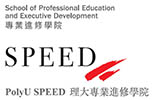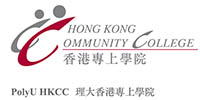雙語社評齊齊聽
[英語 (足本收聽)] Presented by Dr WEBSTER, Wing-sze Carol Louise, Lecturer of Hong Kong Community College, The Hong Kong Polytechnic University
[普通話 (足本收聽)] Presented by Chien Hua Eva Peng, Lecturer of Hong Kong Community College, The Hong Kong Polytechnic University
Amid the intense competition in the global scramble for talent, Hong Kong is facing fierce competition. The Policy Address will be published later this month, and all eyes are on how the government will respond to the situation. Hong Kong's economy needs to be upgraded and transformed to allow the construction of more new engines of growth. The thirst for talent is acutely felt across all fields — from finance, technology to the creative industry. However, the pandemic outbreak, the emigration wave, the ageing population and other unfavourable factors have caused shortages in both talent and manpower in many traditional and emerging industries. Attracting talent and importing foreign labour to alleviate the manpower shortage are two different concepts that need to be dealt with separately. In order for Hong Kong to snatch overseas talent, fully reopening the city's borders and restoring normalcy is only a precondition. The SAR government needs to formulate a comprehensive talent policy. Apart from providing more economic incentives, what's more important is to show the talent pool that Hong kong is ideal for living and working, and that in Hong Kong, they will have both a promising career prospect and a quality life with their families.
A look around Hong Kong's periphery shows that cities like Shenzhen and Singapore have been rather proactive in competing for talent for many years. On the contrary, the Hong Kong government has given people the impression that it has always been passively waiting, simply counting on its advantage of using the mainland to make global connections and waiting for talent to come from various places. Seldom has it planned from the strategic perspective of long-term development for industries and taken the initiative to recruit and retain talent that is needed.
When the SAR government became aware of the need to rush to play catch-up in recent years, it was unexpectedly met with the pandemic. The advantage of "using the mainland to make global connections" could no longer be brought into full play. As the city also fell behind others in the pace of border reopening, some foreign companies and talents chose to leave Hong Kong. Moreover, amid the mass exodus from Hong Kong, some local talents have moved to other places, which has made the problem of talent shortage even more prominent.
Hong Kong's ageing population means that the labour force is threatening to shrink. The emergence of the emigration wave has further reduced the working population. Some people in the business sector have pointed out that all industries are seriously understaffed now. Other than professions such as information technology, healthcare, engineering and education, there is even a manpower shortage for ordinary clerks.
Currently, there are six talent admission schemes in Hong Kong. Prior to the pandemic, around 50,000 to 80,000 people applied for work in the city every year. But it is worth noting that among all the talents admitted through the various schemes, it turns out that only a small portion finally became Hong Kong permanent residents after staying for a full seven years. From 2012 to last year, an average of only 5,000 or so became permanent residents each year. That reflects the low intention of talents to stay here in the long run.
Whether talents are willing to come to Hong Kong is inseparable from considerations of their career and families. When they see that the government has a long-sighted industrial policy and the measures will not chop and change all the time, they will naturally have more confidence in staying in the city for development. Hong Kong has a unique charm as an international metropolis, but the cost of living here makes people hesitate. The government can establish various allowance schemes to alleviate the living cost for overseas talent. It can also draw on the experience of places like Singapore to build "talent apartments" with the government providing rental subsidies. As for professional talents with a family, the government should consider what sort of support it can provide for their children's academic studies.
通盤策略吸人才 關鍵在宜居宜業
全球人才爭奪戰,香港面對激烈競爭,《施政報告》本月稍後發表,政府有何對策備受關注。香港經濟需要升級轉型,構建更多增長新引擎,無論金融、科技還是創意產業皆求才若渴,然而卻遇上疫情、移民潮以至人口老化等不利因素,導致不少傳統及新興行業,皆出現人才短缺兼人手不足的情况。吸引專才與輸入外勞紓緩人手荒,是兩個不同概念,需要分開處理。香港要搶人才,全面通關復常僅屬前提,特區政府需要制訂一套通盤的人才政策,除了提供更多經濟誘因,更重要是讓人才覺得香港宜居宜業,在港發展事業有前途,亦能與家人一起過優質生活。
環顧香港周邊地區,深圳、新加坡等城市,多年來都相當積極爭逐優才,反觀港府予人感覺一直是守株待兔,恃着背靠內地聯通世界的優勢,坐等各地人才前來,甚少從產業長遠發展規劃的戰略高度,主動招攬和留住所需人才。
近年特區政府意識到要急起直追,未料偏偏遇上疫情,「背靠內地聯通世界」優勢無法好好發揮,對外通關步伐又落於人後,部分外資企業和人才選擇遷離香港;移民潮下一些本地專才移居他方,令到人才緊缺問題更形突出。
香港人口老化,意味勞動力有萎縮壓力。移民潮的出現,令到勞動人口進一步減少。有商界人士指出,目前各行各業都嚴重缺人,除了資訊科技、醫護、工程、教育等專業,甚至連普通文員也有人手不足情况。
本港現有6個輸入人才計劃,疫前每年約有5萬至8萬人申請來港就業,然而值得留意是,經由各項人才計劃引進、最終住滿7年成為香港永久居民者,原來只佔少數,由2012年至去年,平均每年僅5000多人成為永久居民,反映人才長遠留港意欲不大。
人才是否願意來港,離不開事業和家庭的考慮。當他們看到政府有長遠產業政策,措施不會朝令夕改、一時一樣,自然會有較強信心留港發展。香港作為國際大都會,有其獨特魅力,可是居住生活成本,卻會令人猶豫卻步。政府可以制訂不同津貼計劃,減輕外來人才居住成本,亦可借鑑新加坡等地經驗,興建「人才公寓」,由政府提供租務補貼;對於已經成家立室的專才,政府則應該考慮,可以在子女學業方面,提供什麼支援。
明報社評 2022.10.05







